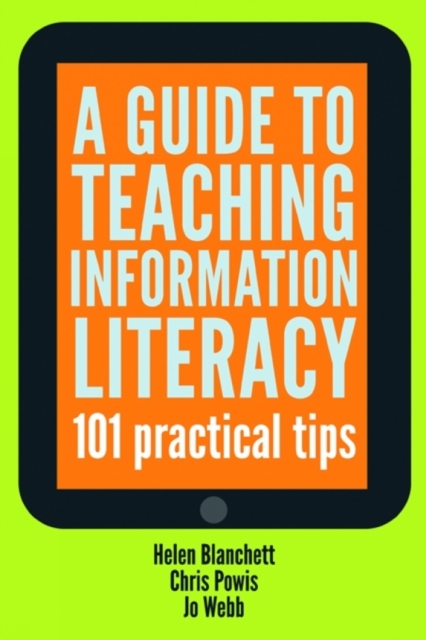
A Guide to Teaching Information Literacy : 101 Tips PDF
by Helen Blanchett, Chris Powis, Jo Webb
Description
This easy-to-use book is an invaluable source of inspiration for any librarian involved in teaching information literacy, providing practical guidance on tried and tested ideas and techniques for sessions.
The role of the librarian increasingly involves delivering information literacy using a range of teaching methods, from delivering induction sessions to informal one-to-one support on a day-to-day basis. Although this is increasingly recognized, many practitioners do not have teaching qualifications and are often left to fulfil a role for which they feel ill-equipped. Even when they do have teaching qualifications, these are often gained from mainstream courses that do not always adequately address the delivery of information literacy.
This book is a much-needed sourcebook to support library staff in the delivery of information literacy teaching, whether they are new to teaching or experienced but in search of fresh ideas. Full of hints and tips grounded in learning theory, it is a practical reference tool designed to be dipped into as needed when planning teaching and training. Where applicable the activities are mapped to models of information literacy, with guidance on adapting ideas for different levels and contexts.
Advice is given on activities in the following areas:
- designing sessions
- preparing sessions
- delivering sessions
- different types of sessions
- teaching by topic
- creating teaching / support materials
- assessing learning
- evaluating teaching sessions
- e-learning.
Readership: Any librarian involved with teaching information literacy and LIS students.
Information
-
Download - Immediately Available
- Format:PDF
- Pages:272 pages
- Publisher:Facet Publishing
- Publication Date:23/08/2011
- Category:
- ISBN:9781856048767
Other Formats
- Paperback / softback from £64.95
Information
-
Download - Immediately Available
- Format:PDF
- Pages:272 pages
- Publisher:Facet Publishing
- Publication Date:23/08/2011
- Category:
- ISBN:9781856048767






